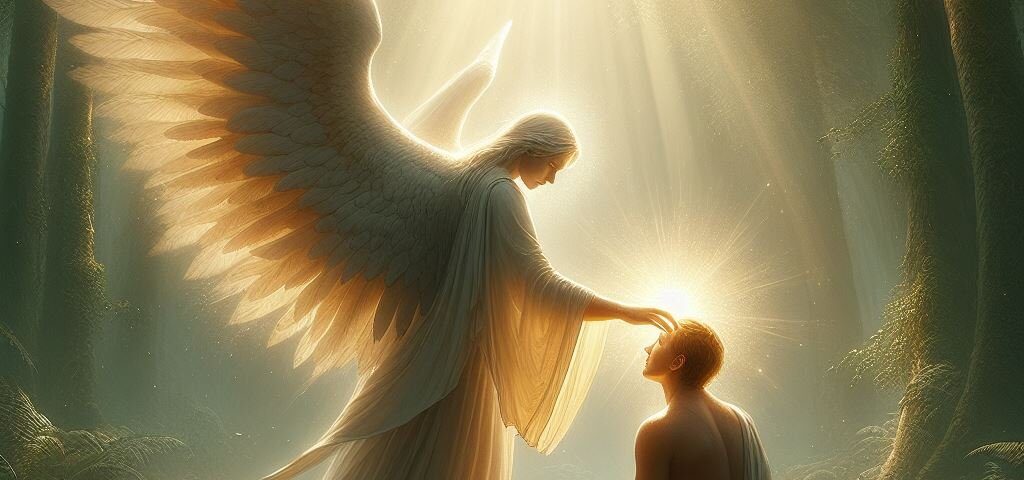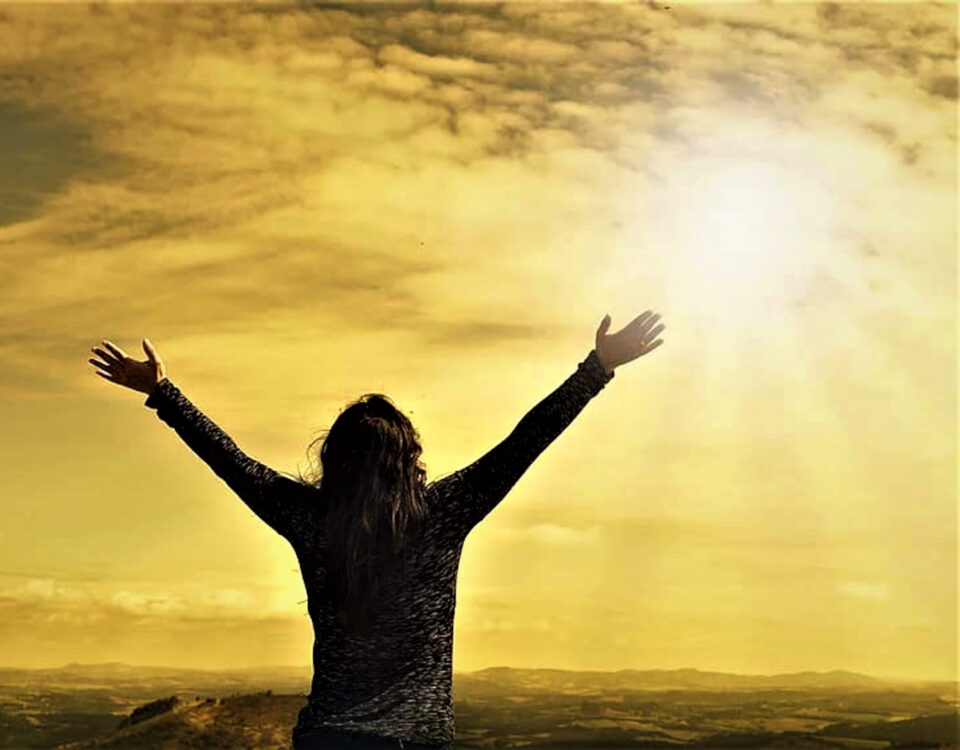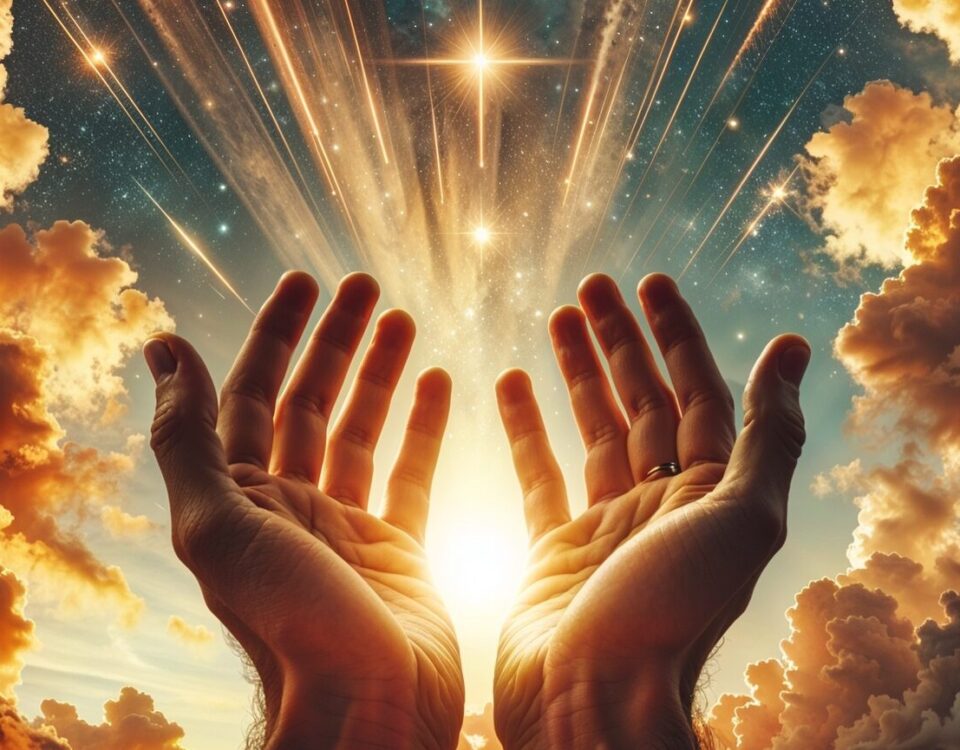Divine Retreat Centre UK – Official Website

How to Overcome Depression
January 25, 2025
12 Unlikely Heroines of the Old Testament – Chapter 7: Hannah, the Woman Who Prayed
January 25, 2025Who is Our Guardian Angel?
Let us take a moment today to reflect on who our Guardian Angel is. Many people have doubts and questions about the existence of guardian angels. In this reflection, we will explore their nature and role in our lives.
The Guardian Angel Prayer
The Guardian Angel Prayer is one of the first prayers that parents teach their children for protection. However, this prayer is not meant only for children—adults should also recite it regularly.
A Historical Connection: St. Augustine’s Abbey
A fascinating historical fact relates to the Divine Retreat Centre—St. Augustine’s Abbey in Canterbury, which was originally a Benedictine Monastery. During the Reformation, King Henry VIII destroyed the Abbey, but after the Church regained religious freedom, it was rebuilt.
Tradition long attributed the Guardian Angel Prayer to St. Anselm of Canterbury, a Benedictine monk associated with this Abbey. However, recent scholarly research suggests that it was actually composed by Blessed Reginald of Canterbury in the 11th century. This prayer, which originated at St. Augustine’s Abbey, has since spread globally. On the Feast of the Guardian Angels, we should express our gratitude to the Lord for designating this Abbey as the birthplace of such a meaningful prayer.
The Nine Choirs of Angels
According to Catholic teaching, there are nine choirs (or ranks) of angels:
- Seraphim
- Cherubim
- Thrones
- Dominions
- Virtues
- Powers
- Principalities
- Archangels
- Angels
Each individual is assigned a unique Guardian Angel at the moment of conception, and this angel remains with us for eternity. Upon our death, our guardian angel returns to Heaven and is not reassigned to another person. This means that billions of angels have existed throughout history and continue to accompany humanity.
The Unseen World of Angels
God has created a vast universe, much of which is invisible to the human eye. Some scholars and Church Fathers suggest that 99% of God’s creation may be unseen by us.
“He is the image of the invisible God, the firstborn of all creation; for in Him all things in heaven and on earth were created, things visible and invisible, whether thrones or dominions or rulers or powers—all things have been created through Him and for Him.”
—Colossians 1:15-16
Angels exist both in Heaven and on Earth, though they often remain invisible. Their presence is a fundamental part of Catholic belief, spanning from Genesis to Revelation. In Genesis, angels guard the entrance to paradise, and Abraham witnesses a vision of angels ascending and descending to Heaven.
Angels have played key roles in salvation history:
- Archangel Gabriel announced the Incarnation to the Virgin Mary.
- An angel appeared to St. Joseph in a dream, guiding him to protect the Holy Family.
- Angels ministered to Jesus during His 40 days of fasting and His agony in the Garden of Gethsemane.
The Role of Our Guardian Angel
From the moment we are conceived, a Guardian Angel is assigned to protect, guide, and support us.
“Are not all angels spirits in the divine service, sent to serve for the sake of those who are to inherit salvation?”
—Hebrews 1:14
Angels are purely spiritual beings with intellect and will. They are sent by God to serve and protect us. However, they remain submissive to the Holy Trinity—only God has authority over them.
While we cannot control our guardian angel, we can call upon them for help. The Church discourages naming our Guardian Angels because naming implies authority. This is why the Church teaches that only God assigns names to celestial beings, as seen with Jesus, Mary, and John the Baptist in Scripture.
How Do Angels Communicate?
Angels do not read minds—only God has that power. However, they are highly intelligent and can understand human thoughts through our expressions, behaviors, and attitudes.
The good angels guide us toward God, while fallen angels attempt to lead us away from Him. Because angels know how much God loves us, they demonstrate their love for God by loving and protecting us.
Symbolism of Angelic Wings
Angels are often depicted with wings, which symbolize swiftness. While they are not omnipresent like God, they move swiftly to carry out His will.
Church Fathers, including St. Thomas Aquinas, St. Gregory the Great, and other saints who encountered angels, have handed down valuable teachings about these heavenly beings.
Angels in Spiritual Warfare
The Book of Daniel provides insight into how angels fight against the forces of evil:
“But then a hand touched me and roused me to my hands and knees. He said to me, ‘Daniel, greatly beloved, pay attention to the words that I am going to speak to you… Do not fear, Daniel, for from the first day that you set your mind to gain understanding and to humble yourself before your God, your words have been heard, and I have come because of your words. But the prince of the kingdom of Persia opposed me for twenty-one days…’”
—Daniel 10:10-13
Here, the “Prince of Persia” refers to a fallen angel. This passage reminds us that spiritual battles occur, and evil forces can delay God’s blessings. Persistent sin can strengthen the influence of bad angels, making it harder for us to receive the protection and guidance of our guardian angel.
The Church encourages families to repent, go to confession, forgive, and have their homes blessed by a priest—this helps restore peace and allows the guardian angel to fully protect the household.
Padre Pio and Guardian Angels
St. Padre Pio had a deep devotion to guardian angels. God granted him the gift of seeing his own angel and those of others. Many people would send their guardian angel to Padre Pio to ask for prayers, and the angels joyfully performed this service for their protectees.
According to Church tradition, every priest, bishop, and pope has a special guardian angel to assist them in their ministry.
The more we communicate with our guardian angel, the more we allow them to help guide and protect us.
Jesus was constantly surrounded by angels, who:
- Ministered to Him in the desert
- Comforted Him in Gethsemane
- Guarded His tomb after the Resurrection
- Announced His Ascension
God considers each of us precious and unique, which is why He has given us guardian angels to protect and guide us.
Duties of Our Guardian Angel
Our guardian angel collects our prayers and presents them before God.
“Take care that you do not despise one of these little ones; for, I tell you, in heaven their angels continually see the face of my Father in heaven.”
—Matthew 18:10
Our guardian angel testifies before God about our actions. If we harm others, their guardian angel will cry out to God on their behalf, as seen in Genesis 4:10 and Genesis 18:20-21.
“I am going to send an angel before you, to guard you on the way and to bring you to the place that I have prepared. Be attentive to him and listen to his voice; do not rebel against him, for he will not pardon your transgression, for my name is in him.”
—Exodus 23:20-22
Final Reflection
God’s angels are here to guide and protect us, but they require our cooperation. When we listen to their guidance, we obey God Himself.
“For He will command His angels concerning you to guard you in all your ways. On their hands they will bear you up, so that you will not dash your foot against a stone.”
—Psalm 91:11-12
Angels do not remove suffering, but they comfort and strengthen us, just as they did for Jesus in Gethsemane and for Padre Pio in his spiritual battles.
Let us respect, listen to, and honor our guardian angels, who lovingly serve as messengers of God.




